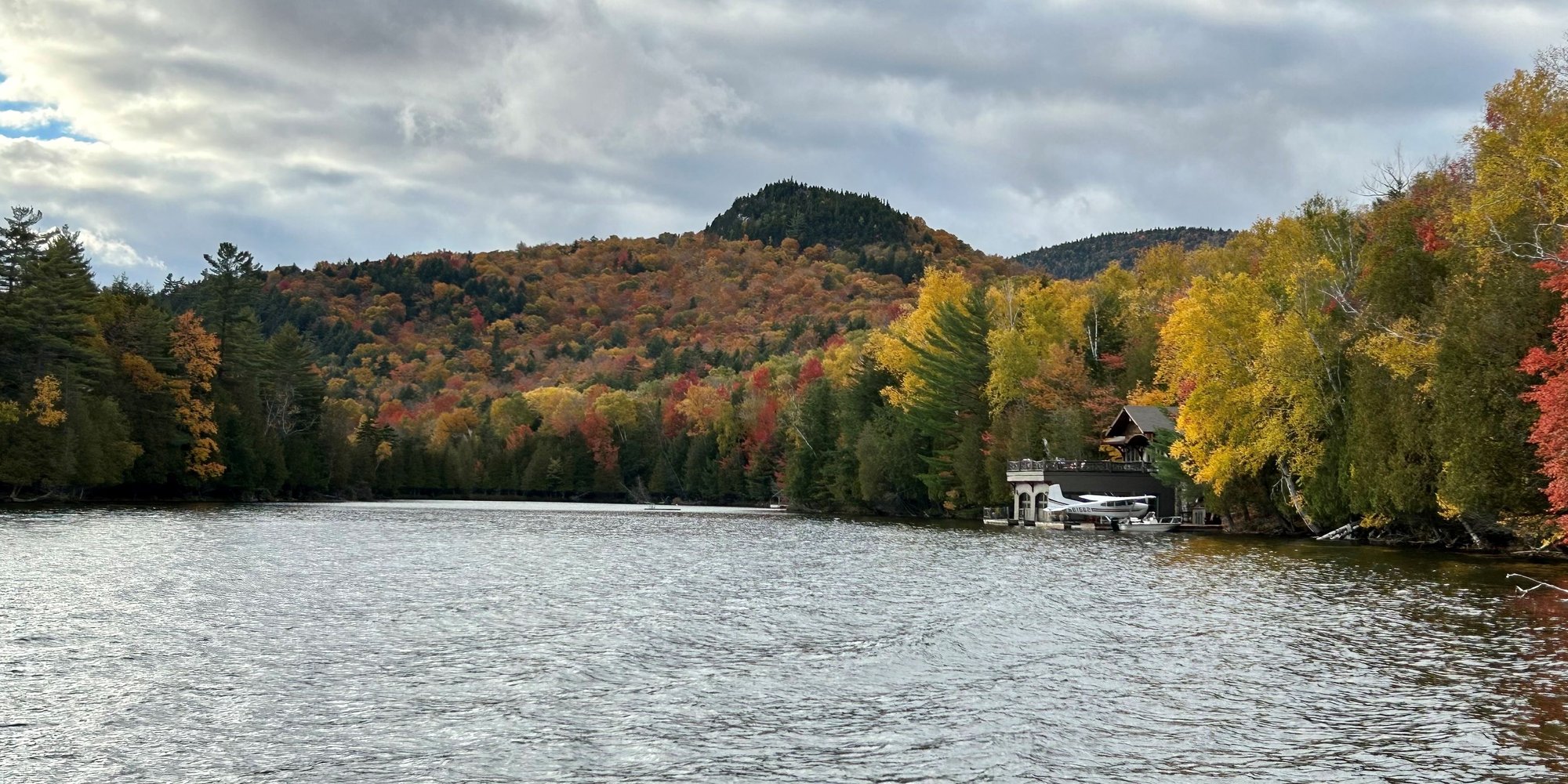When CNY Humanities Corridor Directors received waves of positive feedback from registrants in a 2021 pilot writing program, they knew they had to find a way to sustain the effort as an annual, immersive, full-weekend experience. Plans are currently under way to host the Corridor’s third annual gathering at the Minnowbrook Conference Center in Blue Mountain Lake, NY. This opportunity combines the advantages of expert coaching and peer support with one highly coveted personal benefit: time, without distractions, to focus on one’s own research.
The Corridor’s Directors -- Vivian May, Professor of Women’s Studies and Director of the Humanities Center at Syracuse University, the Corridor’s administrative home; Paul Fleming, the Taylor Family Director of the Society for the Humanities, L. Sanford and Jo Mills Reis Professor of Humanities, and Professor of German Studies and Comparative Literature at Cornell University; and Peter Christensen, the Ani and Mark Gabrellian Director of the Humanities Center and Professor of Art History at the University of Rochester – are always looking to create additional points of entry into the consortium. In recent years, the Directors have channeled shared resources into expanded Corridor-wide research support and professional development opportunities, including free grant-seeking and writing workshops, online writing sessions, and now, this application-based residential writing retreat.
Minnowbrook awardees enjoy lodging, meals, and full tuition for a complete weekend program in the picturesque Adirondacks. Through a careful balance of structured and individual sessions, participants explore new tools and writing strategies to make real progress on their work. "We know from our cohort feedback that the chance to write in a beautiful environment and connect with faculty members from across the consortium is an unparalleled experience,” says May. “Faculty who historically have held heavy service or administrative roles, BIPOC faculty, LGBTQ+ faculty, women faculty, and/or first-generation faculty are especially encouraged to apply.”
Fleming considers this new opportunity to be a crucial innovation and encourages more Working Groups to build from this model in their own future proposals for Corridor support, acknowledging that a few groups already do so. "People need space and time -- two nights and two days of writing together” can be incredibly generative.
Sabine Haenni of Cornell University was one of nearly three dozen Minnowbrook attendees in October, 2022. "Being elsewhere, let alone being in such a beautiful spot with such a different vibe, is very productive for writing," says Haenni. "The group of people was amazing ... everybody was interested in exchange and supportive structures."
The dual benefits of “time” and “community” arise frequently in post-retreat feedback surveys. Making measurable progress on projects is a major takeaway for just as many participants. Guillermina Seri, Professor of Political Science at Union College, says, "In terms of output, it allowed me to complete revisions for an article, and to make progress with two other pieces." Other scholars discovered ways to propel book projects into fellowship proposals and curriculum development.
Lisa Jackson-Schebetta, Associate Professor of Theater History and Theory at Skidmore College, sums up her multi-layered experience: “I wrote 6000 words, re-organized a book project, re-established structures of writing, made new connections with colleagues across the Corridor, and gained insight into both my project and process.”
Inspiring such ‘aha’ moments and tangible results in the Corridor’s 2021 and 2022 retreats were facilitators Jennifer Ahern-Dodson (Duke University) and Monique Dufour (Virginia Tech), conducting workshops and individual consultations via zoom throughout the weekend. Participants could dial in from any comfortable spot on the property, an approach that has been especially appreciated for its inclusive accessibility, with COVID still making the rounds across the country.
The retreat team is mindful not to make it all about screens and meetings, however. Beyond some recommended anchor sessions, scholars are free to shape their retreat experience and select from a range of workshops, hunker down solitarily, or seek out an individual consultation with Ahern-Dodson and Dufour. The Adirondacks’ breathtaking fall foliage just outside Minnowbrook’s doors also beckoned quite a few writers to pause for a rejuvenating trail hike, canoe paddle, or lakeside chat.
Buoyed by participants’ overwhelming appreciation for this opportunity, the Corridor now seeks its next Minnowbrook Fall Writing Retreat cohort! Tenure-line faculty from the eleven Corridor institutions are invited to apply by January 31st for a coveted spot in October. Demand often outweighs available space, requiring a careful Directors’ review of all proposals to select the annual cohort. Learn more at the Fall Writing Retreat page of the CNY Humanities Corridor website.
